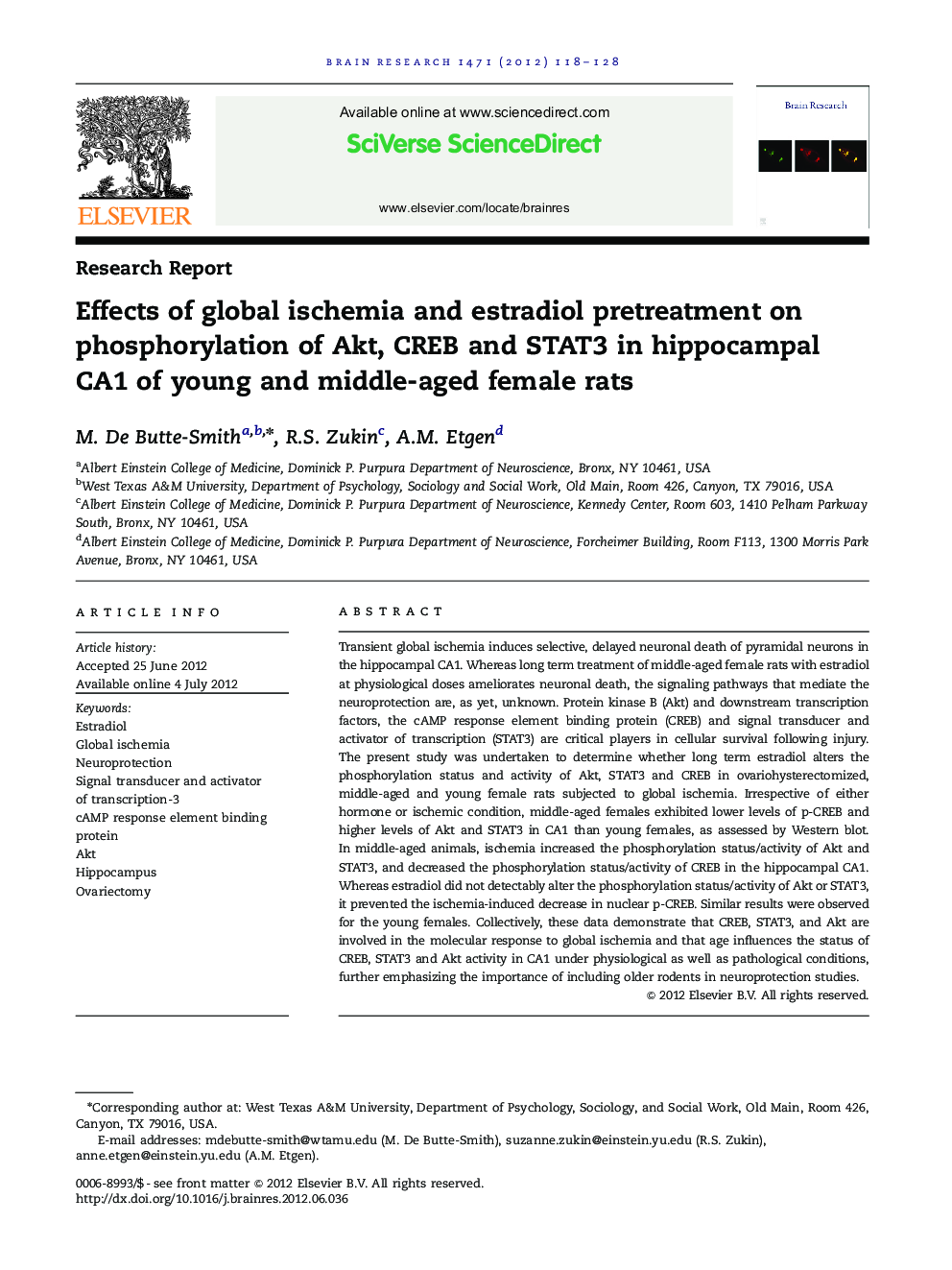| Article ID | Journal | Published Year | Pages | File Type |
|---|---|---|---|---|
| 6264160 | Brain Research | 2012 | 11 Pages |
Transient global ischemia induces selective, delayed neuronal death of pyramidal neurons in the hippocampal CA1. Whereas long term treatment of middle-aged female rats with estradiol at physiological doses ameliorates neuronal death, the signaling pathways that mediate the neuroprotection are, as yet, unknown. Protein kinase B (Akt) and downstream transcription factors, the cAMP response element binding protein (CREB) and signal transducer and activator of transcription (STAT3) are critical players in cellular survival following injury. The present study was undertaken to determine whether long term estradiol alters the phosphorylation status and activity of Akt, STAT3 and CREB in ovariohysterectomized, middle-aged and young female rats subjected to global ischemia. Irrespective of either hormone or ischemic condition, middle-aged females exhibited lower levels of p-CREB and higher levels of Akt and STAT3 in CA1 than young females, as assessed by Western blot. In middle-aged animals, ischemia increased the phosphorylation status/activity of Akt and STAT3, and decreased the phosphorylation status/activity of CREB in the hippocampal CA1. Whereas estradiol did not detectably alter the phosphorylation status/activity of Akt or STAT3, it prevented the ischemia-induced decrease in nuclear p-CREB. Similar results were observed for the young females. Collectively, these data demonstrate that CREB, STAT3, and Akt are involved in the molecular response to global ischemia and that age influences the status of CREB, STAT3 and Akt activity in CA1 under physiological as well as pathological conditions, further emphasizing the importance of including older rodents in neuroprotection studies.
⺠Examined effect of E2 and ischemia on CREB, Akt, and STAT3 in OVX female rats. ⺠Ischemia increased phosphorylation of Akt and STAT3 and decreased phosphorylation of CREB. ⺠E2 prevented dephosphorylation of CREB and increased total STAT3. ⺠Older rats showed lower p-CREB and increased p-Akt and p-STAT3 compared to young.
